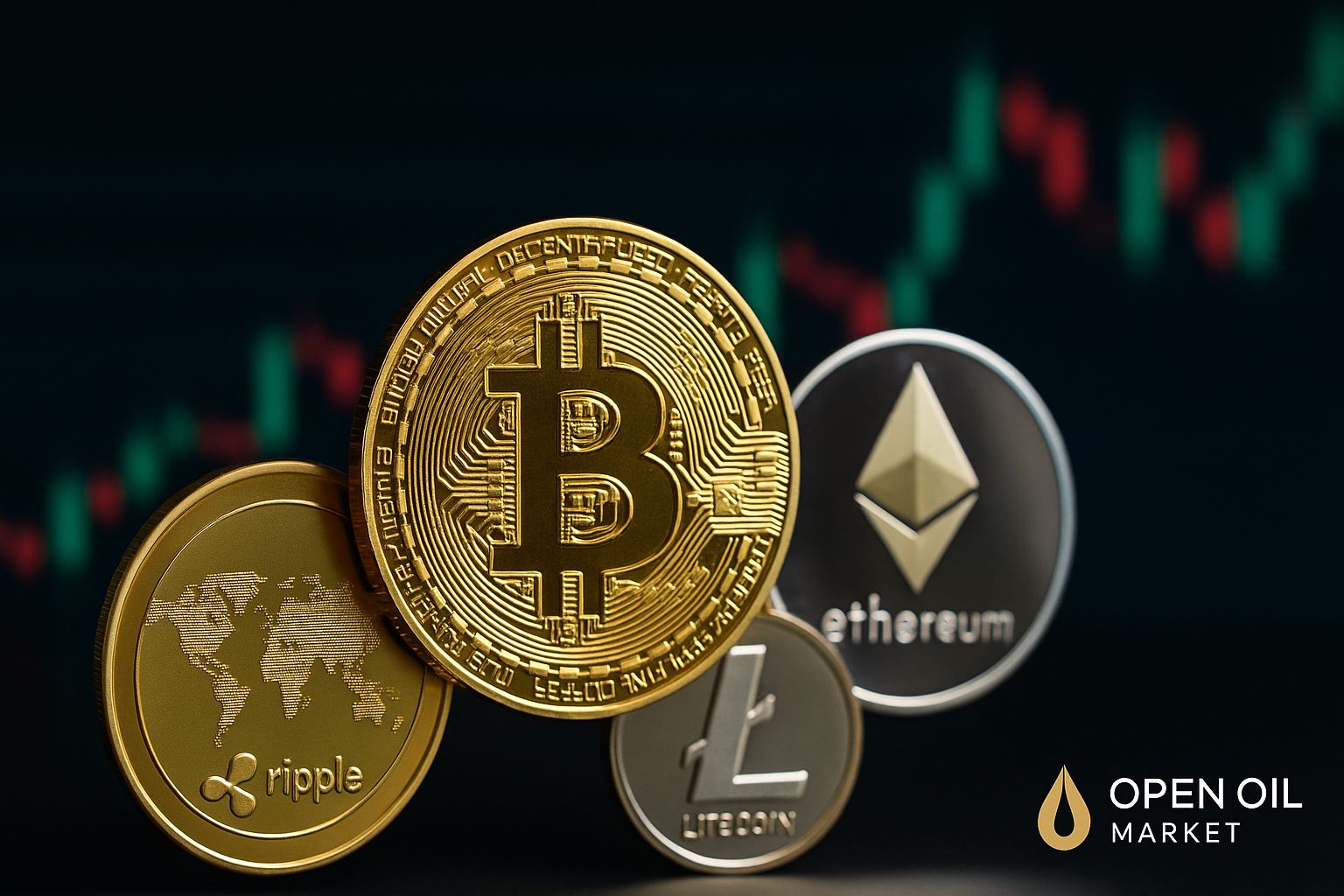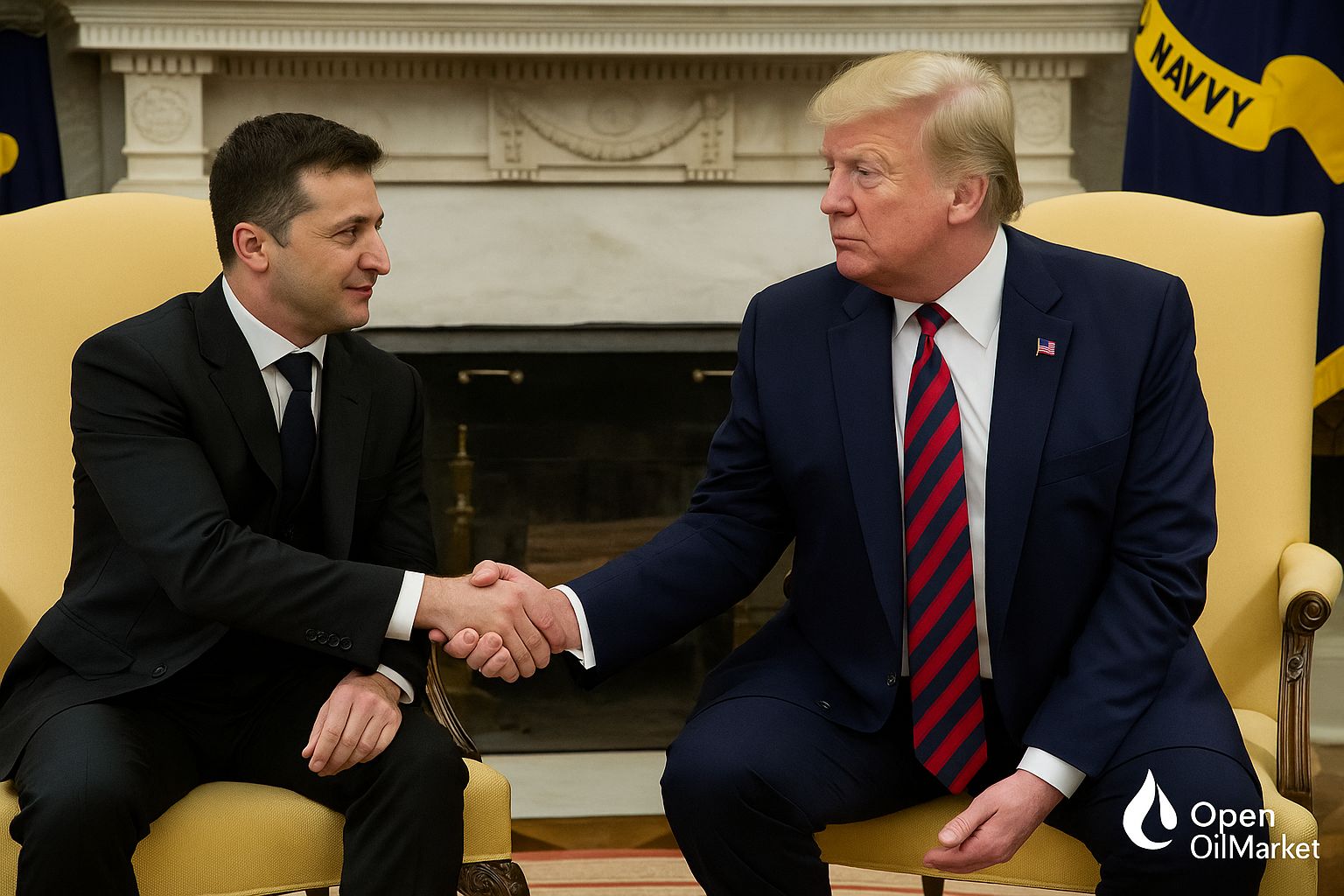
Current Startup and Venture Capital News as of August 18, 2025: Mega Deals, Growth of B2B Marketplaces, New Unicorns, Revival of IPOs, and Global Expansion of Venture Capital. Analysis of Key Trends for Investors.
As of mid-August 2025, the global venture capital market is confidently emerging from the prolonged downturn of previous years. Investors worldwide are once again actively funding tech startups, with deals being struck at record sums, and IPO plans for promising companies regaining the spotlight. Major funds and corporations are resuming large-scale investments, launching new venture programs, while governments across various countries are increasing support for innovative businesses. Preliminary estimates suggest that the first half of 2025 has been the most successful since 2021: in the US and Canada alone, startups raised approximately $145 billion in investments (+43% compared to the same period last year), largely due to a series of massive funding rounds in the artificial intelligence sector. Private capital is gradually returning to the startup ecosystem, providing young companies with the liquidity needed for growth.
Venture activity is currently encompassing all regions. The US remains the leader (especially due to enormous investments in AI startups), the Middle East has doubled its startup funding, while a notable shift occurred in Europe: Germany has surpassed the UK in venture investments for the first time in a decade, underscoring the strengthening of continental ecosystems. In Asia, the situation is uneven: China is experiencing a downturn, while India, Israel, Southeast Asia, and Gulf countries are showing growth and attracting record capital. Even local markets (such as the CIS countries) are striving to catch the new wave of recovery despite external constraints. A new global early-stage venture boom is emerging, though investors remain selective and cautious in their approach.
Below are key events and trends shaping the venture market agenda as of August 18, 2025:
- The return of mega funds and large investors. Leading venture players are forming record funds and increasing investments, refilling the market with capital and heightening the appetite for risk.
- Megara rounds in AI and new unicorns. Unprecedented investments are elevating startup valuations to unprecedented heights, particularly in the artificial intelligence segment.
- Revival of the IPO market. Successful tech company IPOs and new applications confirm that the long-awaited “window” for exits has reopened.
- Diversification of sectoral focus. Venture capital is being directed not only to AI but also to fintech, climate projects, biotech, defense technologies, and even crypto startups, expanding the market's horizons.
- A wave of consolidation: growth in M&A deals. Major mergers, acquisitions, and strategic investments are reshaping the industry landscape, creating new exit opportunities and accelerated growth for companies.
- Digital B2B marketplaces and platforms. Online platforms that connect business buyers and suppliers directly are attracting investor attention and modernizing traditional industries.
- Global expansion of venture capital. The investment boom is spreading to new regions—from the Gulf states and South Asia to Africa and Latin America—where their own tech hubs are being formed.
- Local focus: Russia and CIS countries. Despite restrictions, new funds and initiatives are emerging in the region to develop local startup ecosystems, increasing investor interest in local projects.
The Return of Mega Funds: Big Money Back in the Market
The largest investment players are triumphantly returning to the venture arena, signaling a renewed appetite for risk. Japanese SoftBank, having weathered the downturn, has announced the launch of its Vision Fund III, totaling approximately $40 billion, focusing on advanced technologies (with an emphasis on artificial intelligence and robotics). Concurrently, sovereign funds from Gulf countries are becoming active — they are pouring billions of dollars into innovative projects and developing state mega-programs to support the startup sector, thus forming their own tech hubs in the Middle East. Additionally, dozens of new venture funds (including corporate ones) are being created globally, attracting significant institutional capital for investments in high-tech areas.
Leading Silicon Valley investors are also strengthening their presence. For instance, the venture firm Andreessen Horowitz (a16z) is raising a new mega fund of around $20 billion, primarily targeting AI startups. In the US venture sector in general, funds have accumulated unprecedented reserves of uninvested capital (“dry powder”) — hundreds of billions of dollars, ready for action as investor confidence returns. The influx of “big money” fills the startup ecosystem with liquidity, providing resources for new rounds and supporting the growth of promising company valuations. The return of mega funds and large institutional investors not only intensifies competition for the best deals but also instills confidence in the industry regarding future capital inflows.
Megara Rounds in AI and a New Wave of Unicorns
The field of artificial intelligence remains the main driver of the current venture upturn, demonstrating record funding volumes. Nearly every week, new mega rounds of investment in AI are announced. For example, Canadian startup Cohere raised about $500 million with a valuation of $6.8 billion. Furthermore, OpenAI recently secured $8.3 billion in funding, increasing its valuation to a staggering $300 billion. The largest deal of the quarter was a strategic investment by Meta in Scale AI ($14 billion for a ~49% stake, valuing the startup at $28 billion) to strengthen its position in the realm of data and model training. Riding the tide of such large deals, new unicorns—young companies valued at over $1 billion—are emerging.
Moreover, this trend is global: besides the US, Europe, India, and the Middle East are producing their own unicorns, supported by local funds. Even on developing markets, projects are beginning to emerge that quickly achieve billion-dollar valuations due to capital influx and technological breakthroughs. The extraordinarily large rounds have collectively pushed the total valuation of AI sector startups to unprecedented heights, fueling investor optimism about the sector's prospects.
Revival of the IPO Market: The Exit Window is Open
After a prolonged pause, the initial public offering market is experiencing a revival. Successful IPOs of major tech startups signal that the “window” for venture investors to exit has reopened. For instance, in July, the company Figma made a splash with its stock debut, which soared more than threefold from its offering price on the first day, becoming one of the most impressive deals of recent years. This success has restored faith in public exits for other unicorns that have long awaited the right moment to go public.
In the first half of 2025, more than 150 companies went public globally. Among the recent successful listings are fintech giant Chime, cryptocurrency company Circle, and defense space project Voyager Space: all debuted successfully on the public market. The stock prices of these companies rose significantly on their first trading day, confirming the high demand from investors for new tech issuers. Moreover, several prominent startups have already filed for IPOs in the second half of the year, hoping to take advantage of the favorable market conditions. Expectations are high that 2025 will be a turning point for the revival of IPO market activity.
Diversification of Venture Capital's Sectoral Focus
Despite the dominance of AI, venture investors are actively exploring other areas, diversifying their portfolios. The fintech sector is on the rise: besides successful IPOs of neobanks, significant funding rounds are attracting startups in payments and corporate finance. Interest in climate technologies is also increasing — funds are being directed towards decarbonization projects, renewable energy, and new materials for the "green" economy. Following a downturn in recent years, interest in biotech is being revived: substantial sums are being invested in healthcare, pharmaceuticals, and genetics.
The defense technology sector has also become active. Amid geopolitical tensions, investments in startups focusing on unmanned systems, cybersecurity, and military communications are increasing. A notable example is Anduril Industries, which received $2.5 billion for the development of high-tech defense solutions. The crypto industry is gradually rehabilitating as well: with the stabilization of the digital asset market, investors are showing renewed interest in blockchain projects. For instance, the successful IPO of Circle has bolstered confidence in the prospects for infrastructure crypto startups. Overall, the 2025 venture market is expanding its reach, moving beyond a single sector and opening up new growth points — from finance and energy to healthcare and defense.
A Wave of Consolidation and Growth in M&A Deals
Alongside the investment upturn, activity in the mergers and acquisitions market is rising. Major tech corporations and unicorns are rushing to acquire promising projects, preferring acquisition to developing technologies from scratch. In the cloud security sector, Google is close to a record deal to acquire the Israeli startup Wiz for approximately $32 billion — this could potentially be the largest startup acquisition in history. Tech giant Meta invested $14 billion in Scale AI, securing about 49% of its shares (valuing the startup at around $28 billion) to strengthen its position in data and AI model training. Even leaders in the AI market are expanding through acquisitions: for instance, OpenAI acquired a startup developing AI devices (a project by designer Jony Ive) for $6.5 billion to bolster its hardware division.
Consolidation is also affecting other segments. In the fintech industry, Ripple announced the acquisition of the platform Hidden Road (a prime broker for institutional investors in the crypto market) for $1.25 billion, which will allow it to enter the brokerage services market. In the defense sector, California-based startup Anduril bought the Irish firm Klas, which creates secure communication networks for military use, thereby expanding its portfolio of security technologies. Overall, in the first half of 2025, more than $100 billion in startup acquisitions were announced (up 155% from the previous year) — companies are willing to spend record amounts on strategic acquisitions, especially in the realms of AI and cybersecurity. Thus, the wave of M&A deals not only provides venture funds with the long-awaited exits but also significantly reshapes the industry landscape, consolidating players and accelerating the introduction of new technologies.
Digital B2B Marketplaces: Transforming Traditional Industries
Digital B2B marketplaces and platforms that directly connect business suppliers and buyers, bypassing traditional intermediaries, are experiencing rapid growth. Venture investors are increasingly investing in such models, seeing potential for boosting the efficiency of entire industries — from energy and manufacturing to agriculture and logistics. Online platforms allow companies to find each other faster and more profitably, close deals, and optimize supply chains.
A notable example is the startup Open Oil Market — an online marketplace for oil products that directly connects fuel suppliers and buyers. The project has attracted strategic partners and successfully conducted preliminary funding rounds, also announcing plans for an IPO in 2027. Similarly, in other sectors, their own B2B platforms are emerging: in construction, raw materials trading, and transportation. Many of them are rapidly scaling up and vying for “unicorn” status, modernizing conservative markets through technology. The development of B2B marketplaces has become a global trend, reflecting the digitalization of the traditional B2B sector and attracting significant venture investments.
Global Expansion of Venture Capital: The Boom Is Reaching All Regions
In 2025, the geography of venture investments is rapidly expanding. Beyond the familiar centers like the US and China, the investment boom is penetrating new markets worldwide. In the Middle East, Gulf countries are directing record amounts into startups through sovereign funds, creating large tech hubs in the UAE and Saudi Arabia. In South Asia, the Indian and Southeast Asian ecosystems are growing vigorously, attracting record volumes of capital. Africa is also making its mark: the success of several projects from Nigeria, Egypt, and Kenya is drawing global investors' attention to the continent.
- Middle East (MENA): Startups in the region attracted approximately $2.1 billion in the first half of 2025 (+134% year-on-year); the UAE and Saudi Arabia contributed most to this growth.
- Africa: Funding for African startups reached approximately $1.35 billion over the six months of 2025 (up 78% from last year); record deals have been recorded in Nigeria, Egypt, and Kenya.
- Latin America: Venture funding in the region rose 16% in the second quarter of 2025 (quarter-on-quarter), with Mexico surpassing Brazil in investment volume for the first time since 2012, thanks to significant rounds (for example, the Mexican fintech Klar raised $170 million).
Europe is also strengthening its position: Germany, France, and Northern European countries have increased venture investments, while the UK's growth has slowed post-Brexit. In Asia, the picture is mixed: while China is experiencing a downturn, India, Southeast Asia, and Israel are maintaining robust capital inflow rates, reaching peak deal levels over the past two years. Even in less developed markets in Africa and Latin America, their own unicorns are beginning to emerge, with governments and corporations actively supporting technological initiatives. Thus, the global startup ecosystem is becoming more distributed: new innovation centers are gaining strength beyond the usual startup capitals.
Local Market: Russia, CIS, and New Projects
Despite geopolitical upheavals, the venture market in Russia and the CIS countries continues to develop. New funds and corporate accelerators are emerging with the participation of banks and large companies. Development institutes (e.g., the Skolkovo Fund) are offering grants, tax incentives, and co-investment programs, partially compensating for the outflow of Western capital. Local investors and funds are increasingly focusing on the domestic market and partners from friendly countries in the Middle East and Asia, filling the gap left by departing players.
A striking example is the Краснодар-based foodtech startup Qummy, which raised 440 million rubles in investments, with a valuation of about 2.4 billion rubles, and announced plans to go public in the coming years. Additionally, several major financial institutions have launched their own funds to support technology: for example, PSB established a venture fund worth 12 billion rubles, the investment company Kama Flow has a fund of 10 billion rubles, and the Tinkoff ecosystem is developing the T-Invest fund for investing in fast-growing Russian projects. In 2025, authorities officially permitted the return of foreign capital (from “friendly” countries) to deals with Russian tech companies, potentially opening doors for new funding inflows into the industry.
Although the absolute volumes of venture investments in the region remain modest for now, they are steadily growing. According to the Russian Venture Company (RVC), around $80 million was invested in Russian tech startups in the first half of 2025 — approximately 70% more than the previous year (though still just a fraction of the global market). Local investors are betting on projects in the fields of artificial intelligence, import substitution, cybersecurity, and B2B services. Gradually, a new wave of tech entrepreneurs is forming, capable of developing businesses under challenging conditions. The regional startup ecosystem is striving to leverage the global uptick to lay the groundwork for future growth — even if this requires more time and internal support.




